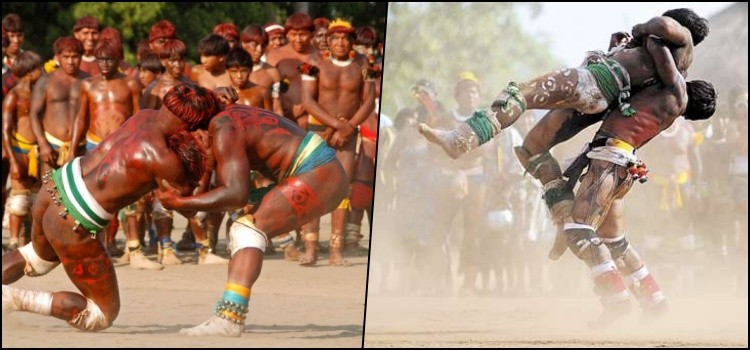Have you heard that the Japanese language has similarities with the tupi-guarani language? How is that possible? In this article, we will present and unravel this mystery and these small similarities.
For those who don't know, Tupi-Guarani is one of the most important language families in South America, it encompasses several indigenous languages that are part of several tribes in Brazil and even as the official language of Paraguay.
Table of Content
Tupi-Guarani vs Japanese
Below we can see several similarities between the Japanese language and Tupi-Guarani:
Responsive Table: Scroll the table to the side with your finger >>
| Japanese | Tupi | Portuguese |
| kabe | acapê | parede |
| ame | ama | rain |
| anya | aha | Darkening |
| arashi | arassy | storm |
| kashi | caxi | candy |
| kuri | curi | chestnut |
| mi | mi-mi | seed |
| tataku | "tataca" | to snap |
| disappear | sumarê | wildflowers |
| oh-shuu | au-ssub | deep affection love |
| agete | fix | J - entirely T - Certainly |
| aranu | frog | false, erroneous |
| arai | ara-á | restless |
| ari | ayri | J - ant T - little kid |
| to me | hi | J - verdure T - green |
| oh-zou | a-jó | J - shelter T - bag |
| ai | ouch | break |
In Japanese, there is the demonstrative pronoun ano (あの), while in Tupi there are the demonstrative pronouns aõ and anõi.
It is not enough to have a similar pronunciation, Tupi-Guarani and Japanese have similar words with the same or similar meaning.
Sometimes not only the words but even the Japanese grammar looks like Tupi-Guarani.
Other similarities between Tupi-Guarani and Japanese
It's not just the language and its features that have similarities with Japan, its traditional huka-huka fight has several similarities with sumo and judo. It is worth mentioning that there is also a great similarity with the Turkish language.

This is not the only language that has similarities with the japonês, we have already written an article about this topic, you can read clicando aqui. In this article we discuss different languages from chinês to hebraico.
Some scholars also create theories about the probability that tupi-guarani has its roots in Asia. In addition to the Japanese language, tupi-guarani also shares several similarities with Sumerian, further proving such a belief.
History or collective unconscious?
Others claim that these coincidences are nothing more than the collective unconscious, which consists of the idea that we all inherit tendencies, traits, virtual images, which would be common to all human beings.
Are the Tupi-Guarani descendants of the eastern peoples who crossed the Bering Strait? Could it be just a coincidence, and the 2 languages originate from a single proto-language?
Or is this a result of the collective unconscious? Does this have to do with the tribe Ainu Tribe? What is your opinion on this matter? Leave it in the comments and share this article with your friends.
